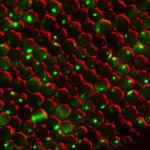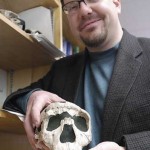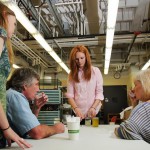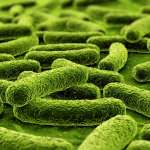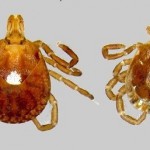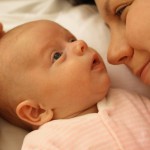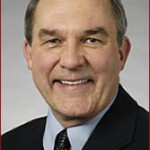Category Health & Wellness
Researchers discover early step in blood stem cell development
University of Wisconsin School of Medicine and Public Health (SMPH) researchers have discovered a very early regulatory event that controls the production of blood stem cells and the adult blood system.
New look identifies crucial clumping of diabetes-causing proteins
People get type 2 diabetes. So do cats. But rats don’t, and neither do dogs. Subtle differences in the shape of proteins protect some and endanger others.
Discovery sheds light on how changes in lungs can hurt the heart
A team of University of Wisconsin–Madison researchers has discovered important biomechanical changes in human arteries that could increase understanding of how pulmonary hypertension leads to heart failure.
WARF Innovation Award winners offer a better oat, infection disrupter
A new oat offering tasty ways to lower cholesterol and compounds capable of disrupting serious bacterial infections earned top honors in this year's Wisconsin Alumni Research Foundation Innovation Awards program.
Zinc discovery may shed light on Parkinson’s, Alzheimer’s
Scientists at the University of Wisconsin–Madison have made a discovery that, if replicated in humans, suggests a shortage of zinc may contribute to diseases like Alzheimer's and Parkinson's, which have been linked to defective proteins clumping together in the brain.
John Hawks explores how celiac disease evolved
Celiac disease is an evolutionary paradox, says University of Wisconsin–Madison anthropologist John Hawks.
Statewide poll demonstrates overwhelming support for healthy choices
Transform Wisconsin today released findings of a statewide public opinion poll on attitudes toward healthy living and disease prevention. The survey of 600 likely voters in Wisconsin was conducted from Aug. 1-3 by Public Opinion Strategies.
Microbiome and human health workshop
The opportunity to couple this emerging field and a traditional strength of UW–Madison — large longitudinal studies such as the Wisconsin Longitudinal Study; the Beaver Dam Eye Study; MIDUS, Midlife in the United States; and the Wisconsin Sleep Cohort — will be explored in a small, one-day workshop to be sponsored by the Center for Demography of Health and Aging and the Center for Demography and Ecology.
UW Health and VA will work together to improve veterans’ health
The UW program will receive $1.9 million from the VA to participate in a project called Sustainable Engaged Relationships for Veterans Integrative Clinical Education (SERVICE) to work with clinicians in the VA on how to change the way they practice medicine from a focus on disease to a focus on the whole health of the veteran.
Tasty Solution: Better beverages for people who have trouble swallowing
After having a stroke in 2008, Jan Blume lost the ability to swallow for two full years. As she slowly regained that vital function, she faced a new challenge: drinking the thickened beverages that are recommended for people with swallowing problems, or dysphagia. She found the drinks almost intolerable.
Tuberculosis genomes portray secrets of pathogen’s success
By any measure, tuberculosis (TB) is a wildly successful pathogen. It infects as many as two billion people in every corner of the world, with a new infection of a human host estimated to occur every second.
UW wins grant to study menthol cigarettes
The National Heart, Lung, and Blood Institutes (NHLBI), in collaboration with the FDA, has awarded the University of Wisconsin Center for Tobacco Research and Intervention (UW-CTRI) a $368,000 grant to study the use of menthol cigarettes. This project will add to the body of research the FDA is examining to determine whether or how to regulate menthol flavoring in tobacco products.
UW researchers witness new type of cell division, use it to battle cancer
While on their way to finding a means to attack certain types of cancers, the researchers made the first observations of cytofission in humans, a type of cell division that occurs at a different time than normal division.
Yin awarded inaugural Hartmann Prize in Auditory Neuroscience
Dr. Tom C.T. Yin was awarded the inaugural William and Christine Hartmann prize in Auditory Neuroscience, given by the Acoustical Society of America at its recent meeting in Montreal.
Exotic lone star tick making a home in Wisconsin
It's shaping up as a summer like no other for ticks across Wisconsin - including the strongest contingent yet of a bloodsucker new to the state.
With a few questions, pharmacists can make Ramadan’s fast safe for Muslim patients
Nearly a quarter of the world's population is celebrating Ramadan this month, but many of them are fasting in observance of the Muslim holy month at unnecessary risk to their health.
In a sea of data, Bioinformatics Resource Center rides genomic wave
In July 2012, the UW–Madison Bioinformatics Resource Center opened for business, providing one-stop shopping for genetic sequencing, genome assembly, analysis and a host of services to help UW–Madison faculty and others make sense of the sea of data generated by new technologies that have put the secrets of human, plant, animal and microbial genomes within tantalizing reach.



